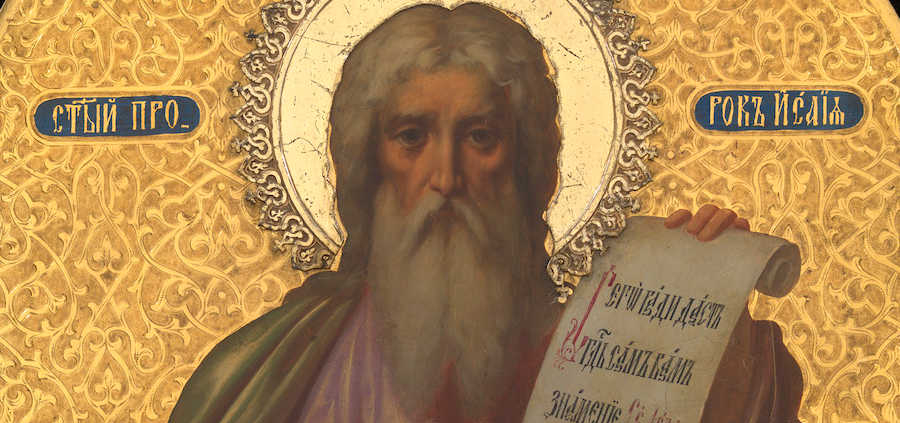The Season of Paradox: On the Readings for Second Sunday, Cycle A by Fran Salone-Pelletier
Christianity is a life filled with paradox. Nothing is as it seems. The cross seems a scandal, holy, foolishness. Yet, in fact, it is the instrument of salvation. The King of Kings has no court, no palace, and is instead a man who lives solely to serve others. His crown is one of thorns, not gold and precious jewels. Royal power has been transferred into a powerful life of service.
The Christian life is filled with assertions that are seemingly contradictory, opposed to common sense, yet the assertions are discovered to be, in fact, true. The one clarity is that God calls us to do God’s will. God calls us in a variety of mysterious ways, yet the message is always the same: God calls us “to be a holy people.” Impelled by God’s call, our response is, “Here I am Lord. I come to do your will.”
Collectively, we hear this as a call to holiness. But what does it mean? What is the will of God for us, individually and as a people? What does it mean to be a “holy people”?
There is no blueprint answer. There is no diagram listing specific details. There is only Jesus, the Paradox; Jesus, the Way; Jesus, the Truth; Jesus, the Life. There is only Jesus, the leader who says, “Come, follow me.” There is only Jesus, the Son of God, who became human to be a savior for all humanity—and was not recognized!
Isaiah makes this paradox quite obvious. He reminds us that God calls for servanthood. “You are my servant, Israel.” Servants have always been “bottom-of-the-heap” people. They are the “step-’n-fetch-it” folks of the world. They go through life unrecognized as persons, unnoticed as human beings. They are the kind of people whose names are not remembered, whose faces are blurred in the crowd, whose worth is not counted until they are absent from our lives.
And yet, paradox! God says, “You are my servant, Israel, through whom I show my glory.” It is through the apparently lowly ones that the glory of God will shine forth to illumine the world and save it from deadly darkness.
It is not a servanthood that we “happen into” as a consequence of life. It is a call spoken by God. It is a call that sounded and resounded long before we were born. It is the way back to God, our creator, for each of us and all of us together. Isaiah reminds us, “Now, God has spoken who formed us as servants of God from the womb, that Jacob may be brought back to God and Israel gathered to God.” It’s a tall order, yet it is a divine commission.
God calls us to be servants. It would seem that we are called to be followers not leaders, at the bottom, not top, of the heap. Yet, once again, there is paradox: the follower is actually the leader. The unrecognized ones are the bright lights. This is the way things are in our lives when God is the center. No matter how “un-glorious” our life appears to be, it is true that each of us is “made glorious in the sight of God and God is now our strength.”
It is a good message to hear in the dead of winter when all the holiday excitement and frantic pace is over, when we are in the winter routine and the doldrums have us in thrall. Now is the season of paradox. Now, when darkness looms, there is light. God is working, present, loving, caring, forgiving, sharing God’s life with us, in us, and through us. Even more is promised: “I will make you a light to the nations, that my salvation may reach to the ends of the earth.” That’s God talking!
It’s the call Paul heard and proclaimed to the church at Corinth. It’s the call we hear today. It’s the call Jesus heard as he lived and worked and prayed as God-man. It’s the call of paradox. All appears to be in darkness, yet we are the light—even if no one seems to recognize the light we are.
Jesus went through the same confusion. He was equally unrecognized. He was not viewed as Messiah, as light of the world, as God’s chosen one. Life was no easier for Jesus than was his death.
John the Baptist’s mission was to prepare the way. His baptizing had the express purpose of preparing people for the Messiah’s coming. Yet he did not know that Jesus was the Messiah. He did not recognize who Jesus really was until he saw the power of God working in Jesus.
So it will be with us. We will not be recognized, even by those whom we would expect would know us well. Unrecognized disciples—those of yore and we, today—will go about our world quietly working in the service of God. Then, one day, when we have been so opened to God that God is truly the center of our lives and we are totally transparent, the light we are will be seen as God’s light. The love we share will be received as God’s love. And it will be said of us, as it was said of Jesus, “This is God’s chosen one.”
In turn, God will announce, “And, I am well pleased with you, good and faithful servants.” ♦
Fran Salone-Pelletier holds a master’s degree in theology. She is the author of a trilogy of scriptural meditations, Awakening to God: The Sunday Readings in Our Lives, from which this selection is taken. She is also a religious educator, retreat leader, lecturer, and grandmother of four. Reach her at hope5@atmc.net.





Leave a Reply
Want to join the discussion?Feel free to contribute!